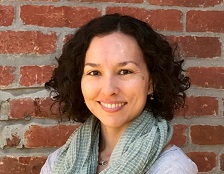
I’m Alison Miranda, Senior Learning Officer with global transparency and accountable governance funder collaborative Transparency and Accountability Initiative (TAI).
Inspired by conversations at recent convenings of the European Evaluation Society (EES) and the Evidence in Governance and Politics (EGAP) researcher-practitioner network, I share below tips and examples that might help evaluation practitioners and commissioners put values into practice.
Rad Resources: In grappling with this challenge, the evaluation community might learn from ongoing efforts in philanthropy to integrate diversity, equity, and inclusion into grant making practices, as noted by the Ford Foundation and the William and Flora Hewlett Foundation, for example.
Hot Tip: Undertake a critical reflection on organizational practice and document the resulting common principles and practices.
More than a values statement, documenting such principles can inform all aspects of evaluative practice. The American Evaluation Associate recently updated its guiding principles, and EGAP has started to build on its statement of research principles. The network of academics and researchers of the Governance Lab at MIT have documented their approach to equity and inclusion.
Hot Tip: Support and engage in cross -cultural and -sectoral relationships.
Such relationships can help to elevate the global south actors’ knowledge and evaluative capacity, needs noted by the global evaluation association leaders during their EES session on equity and resilience in evaluation. There are a range of tactics and strategies from which to draw inspiration, such as exchanges incubated through EGAP Learning Days, the partnership approach of the Accountability Research Center, or the emerging global campaign of the South to South Evaluation Initiative.
Hot Tip: When funding or commissioning an evaluation, plan for a longer tail to the end of project timeline.
This practice is often cited around increasing dissemination and use of evaluation findings. In the context of values-driven and ethical evaluation practice, this time can be used for knowledge documentation among a more diverse set of stakeholders, and for dissemination, particularly with those populations most involved in or affected by the program and/or evaluation.
Hot Tip: Support knowledge and evidence consolidation beyond a given evaluation project period.
This is particularly valuable for evaluators and researchers who are typically excluded from or otherwise outsiders to global north publication platforms and outlets. And beyond formal or academic publications, there is untold knowledge lost in unpublished null findings, rich content for future thematic or policy-relevant white papers, and instructive experiences to be shared through articles, blogs, or stories.
Why does this matter?
Rad Resource: Keryn Hassall, an Australia-based social scientist and presenter at EES, offered an excerpt from The Edge of Reason, that to pay attention to marginalized perspectives “is not to give up objectivity …, but to help achieve greater objectivity by getting a clearer, more expansive and fuller view of our shared reality.”
Rather than assume away the presence of values in evaluative work, the field would benefit greatly from making these values explicit in and around evaluation processes and decision making.
Do you have questions, concerns, kudos, or content to extend this aea365 contribution? Please add them in the comments section for this post on the aea365 webpage so that we may enrich our community of practice. Would you like to submit an aea365 Tip? Please send a note of interest to aea365@eval.org. aea365 is sponsored by the American Evaluation Association and provides a Tip-a-Day by and for evaluators.

Hi Alison,
Thank you for touching on the importance of documenting practices and principles. I think it is important to address continual development and your tip about updating principles and recording practices really hit home for me. Like you, I also think the cross-cultural and cross-sectoral relationships are important because I feel that there is so much we can learn from collaborating with others. Especially those who are different than us. I had previously not considered the importance of planning for more time at the tail end or consolidating data. Thank you for your recommendations!
Andrea Lopez
Alison I am unable to find part I would you be so kind of sending it to me please
maria.whittingham@esap.edu.co
You can find Part I of Alison’s post here: https://aea365.org/blog/understanding-values-in-evaluation-part-i-by-alison-miranda/